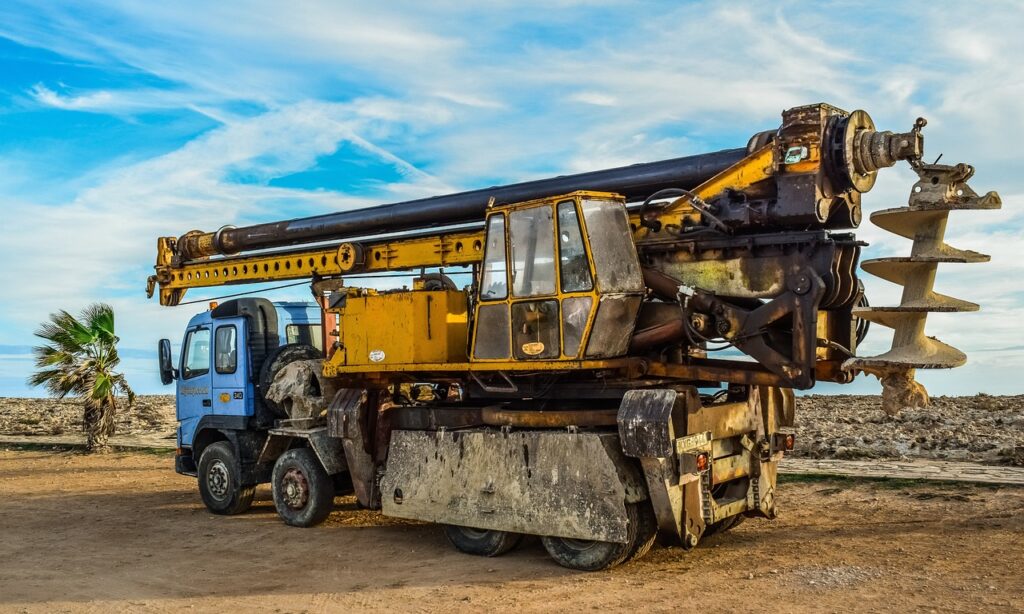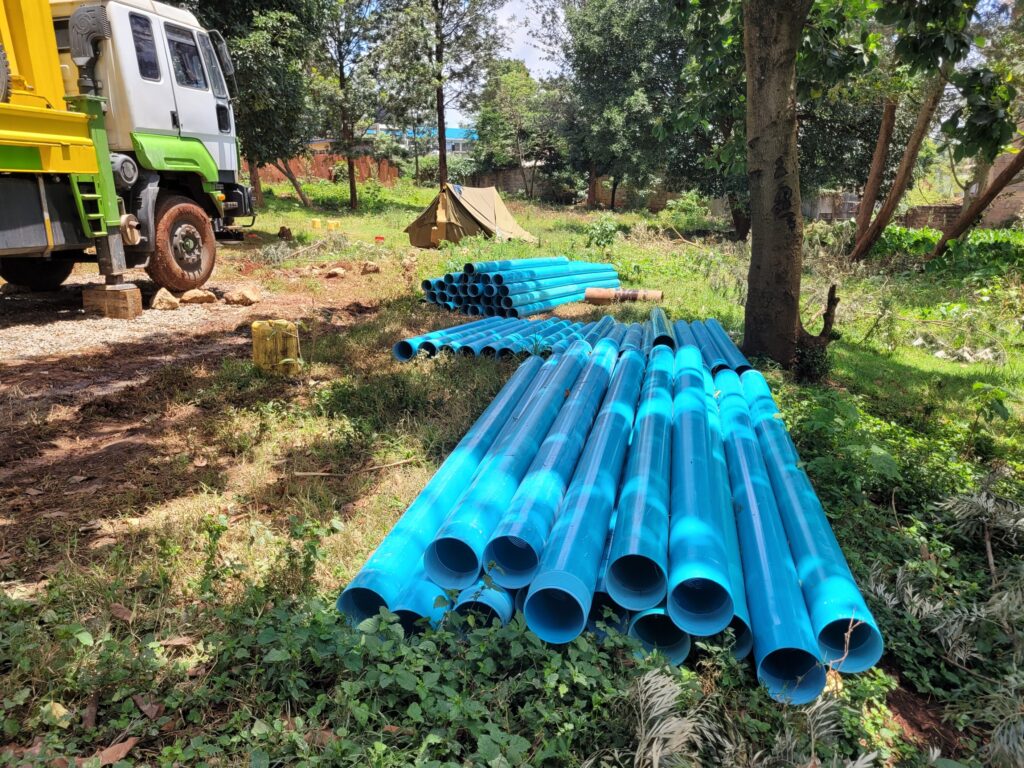When water needs to be obtained from deep underground, people drill a borehole or well. This borehole brings fresh water to the surface for drinking, farming, and other purposes.
But did you know that tiny rocks called gravel are an essential part of making these boreholes work?
Let’s dive into why gravel is vital in borehole drilling and how it helps keep water flowing safely and cleanly.
Understanding Borehole Drilling

Imagine you’re digging a really deep hole to reach water underground. A borehole is a carefully drilled hole that goes deep into the earth to get water stored below.
When we drill a borehole, we must ensure it stays open so it doesn’t collapse or get dirt-filled.
To help with this, we line the hole with a long, sturdy pipe called a well casing.
But even with the casing, other materials are needed to keep everything safe, clean, and working well—and that’s where gravel comes in!
Also read Why You Need a Hydrogeological Survey Before Borehole Drilling
The Purpose of Gravel in Borehole Drilling
Gravel might look like regular small stones, but it plays a significant role in boreholes. Here’s how:
1. Stabilizing the Borehole
Gravel is packed around the outside of the casing to help keep the borehole from collapsing. It acts as a strong support for the hole walls.
As stones at the bottom of a garden fence might keep the soil in place, gravel keeps the borehole walls from crumbling inwards, helping the borehole stay open for many years.
2. Filtering Out Dirt for Cleaner Water
Have you ever used a strainer to separate spaghetti from water?
Gravel does a similar job by acting as a natural filter. As water flows through the gravel, tiny dirt and sand get trapped.
This keeps the water that flows into the well much cleaner, which means the water that eventually comes up is more apparent and safer for us to use.
3. Supporting the Well Screen
The well screen is like a fine mesh covering the end of the casing, stopping large pieces of dirt from entering the water supply.
Gravel packs help keep this screen steady and protected. Without gravel around it, the screen could get damaged or clogged up with dirt, making it harder to get water from the well.
Why Gravel Packs Are So Important

Gravel packs offer some big benefits for boreholes:
- Better Water Flow: By keeping dirt out, gravel makes water flow into the well easier. With less dirt, water moves freely so the well can pump out water more efficiently.
- Less Maintenance and Longer Life: Because gravel reduces dirt and sand in the water, boreholes need less cleaning and fixing. That means the well can last longer and save money over time.
- Higher-Quality Water: Since gravel filters out a lot of dirt, the water from the borehole is cleaner. This is especially helpful for people who rely on borehole water for drinking, cooking, and farming.
Also read Can Water Be Found in Rocky Areas?
Choosing the Right Gravel
Not all gravel works the same way. The gravel used in boreholes must be the right size to filter dirt without blocking water flow.
If it’s too small, water can’t pass through easily. If it’s too big, dirt and sand can slip through, defeating the purpose.
Experts choose gravel sizes based on the soil and rock type underground so the borehole works effectively.
How Gravel Is Packed Around the Borehole
To ensure gravel does its job, it’s packed tightly around the outside of the casing.
The gravel is placed carefully to surround the borehole screen and fill gaps. This setup helps ensure dirt doesn’t get in and the well stays open, allowing fresh water to flow easily.
Challenges with Gravel

Sometimes, choosing the suitable gravel or placing it correctly can be tricky.
If the gravel is too loose or the wrong size, it won’t filter well or keep the borehole stable.
And because each location has different soil and rock types, experts must decide which gravel will work best for each borehole.
Conclusion
Gravel might seem simple, but it’s like a hero behind the scenes in borehole drilling.
By supporting the walls, filtering dirt, and protecting the borehole screen, gravel helps boreholes bring clean water to the surface for everyone to use.
The next time you drink a glass of water, remember that it might have come from deep underground—and that gravel was there to ensure that it reached you safe and clean!
Also read The Science Behind Borehole Test Pumping
You can find us on Facebook, YouTube, and TikTok for more insights and success stories.



Pingback: Is Borehole Water Good for Irrigation?